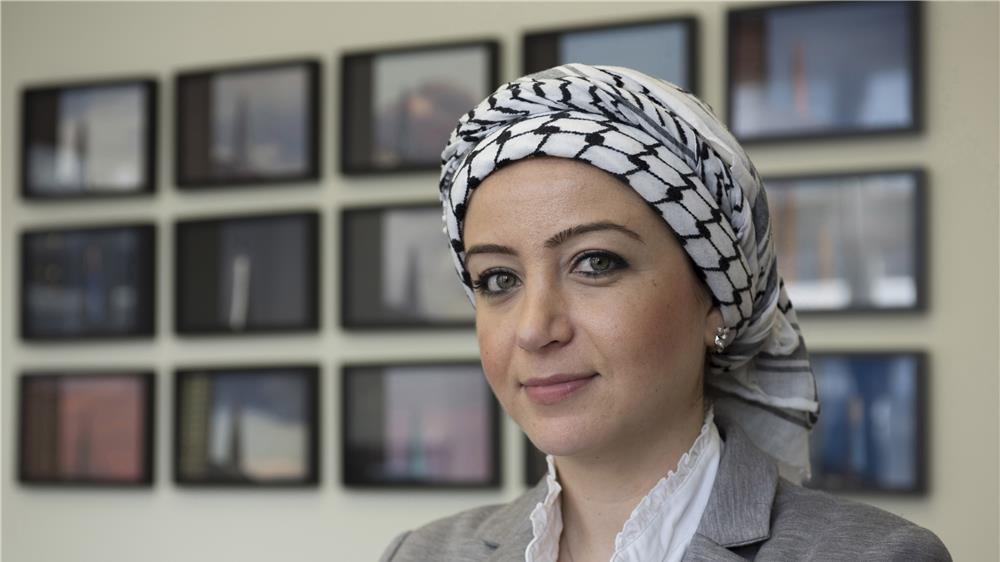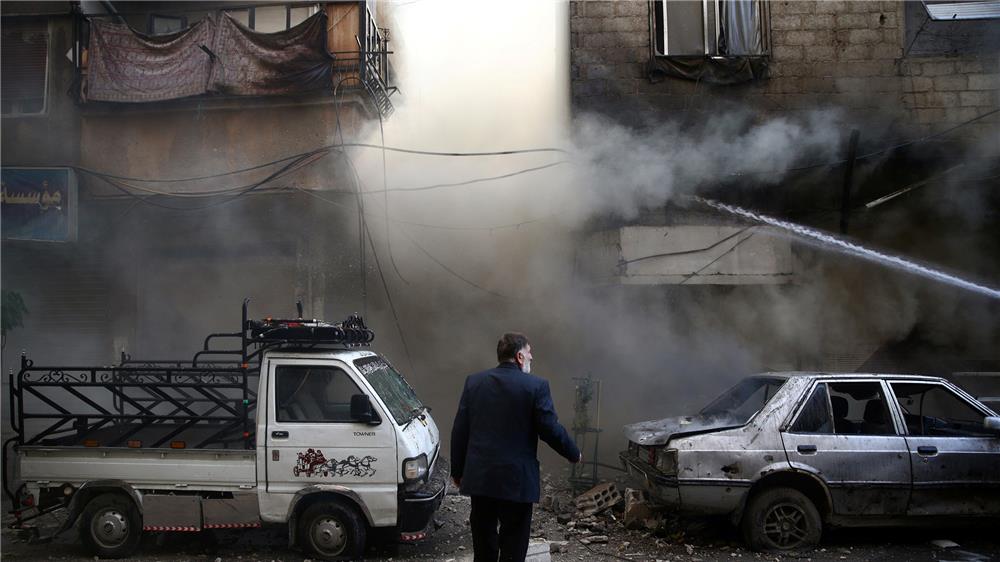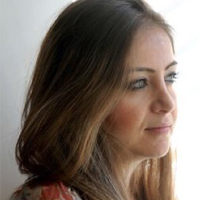في سوريا الأسد وسوريا تنظيم الدولة وسوريا المعارضة المسلحة والقاعدة وسوريا الأكراد، أن تكون صحفياً يعني أن تواجه قائمة طويلة من العقوبات يفرضها عليك مستبدون مختلفون، تتراوح ما بين اعتقال وخطف وقتل تحت التعذيب، وذبح بإصدار أو بدونه، وإعدام بالرصاص، ومحاكمات شرعية ونفي ومنع.
"الخوف يؤرق حياتك ويعطل تفاصيلها، فأي معلومة تتسرب عنك قد تضعك تحت الأرض لسنوات، إضافة إلى الحواجز التي تحتاج لتخطيط استراتيجي لعبورها.. فأحيانا قد أضيّع يوماً كاملا لأقابل مصدراً واحداً"، تقول الصحفية رافية سلامة التي تكتب من دمشق.
يؤرق رافية أيضاً استخدام اسم مستعار للنشر، وسطوة الاعتبارات الأمنية على شخصيتها الصحفية وإنتاجها.. "أحياناً أتساءل: لمَ أكتب وأنا لا أجرؤ حتى على مشاركة إنتاجي على صفحاتي الخاصة على وسائل التواصل الاجتماعي؟ لا أحد من أصدقائي يعرف ما أفعل، ولا أسمع تقديراً ولا نقداً.. أنا كمن يصرخ في واد سحيق دون أن يعرف إن كان صوته يُسمع أم لا".. تشرح بغصّة، مضيفة "الأصعب من ذلك كله في عملي الصحفي هو اضطراري لحذف رسائل الآخرين وذاكرتي معهم لئلا أعرِّض سلامتهم للخطر في حال اعتقالي.. يحوِّلني هذا إلى كائن دون ذاكرة".
أما بالنسبة لماريا أبيض التي تعمل مصورة أفلام في دمشق أيضاً، فلم تعد رقابة النظام المشدّدة أكبر مشاكل عملها.. "الأصعب الآن هو إقناع الناس بفعالية ما تكتبينه أو تصورينه، فهم يرون ألا داعي لأي مخاطرة لنشر موضوع لن يُحدِث أي تأثير، وإن قبلوا فلا يحدثك المصدر إلا شفهيا ودون أسماء حقيقية طبعاً، مع تغيير المعلومات الديمغرافية والعمر.. إلخ"، تقول ماريا.
لا يختلف الحال كثيراً في مناطق المعارضة حيث تعمل هادية المنصور التي أخبرتنا أن "عدم ثقة الناس وخوفهم -رغم كوننا في مناطق خارجة عن سيطرة النظام- لا تزال التحدّي الأكبر الذي أواجهه في عملي.. أمضي أغلب وقتي في إقناعهم بالحديث، وأيضاً أغلب أسماء مصادري مستعارة تماما كاسمي الذي أنشر به".
وتضيف إلى ذلك مها الأحمد التي تعمل في ريف إدلب، "انعدام الأمان والفوضى وصعوبة الحركة والتنقل بسبب القصف المتواصل، ووجود بعض الجهات المتطرفة التي تعادي الصحفيين".
يتضاعف خوف الصحفيات حينما يعملن في مناطق سيطرة تنظيم الدولة، إذ تقول هبة إسماعيل التي عملت في الرقة قبل هروبها منها منذ عامين، إن "أكبر تحديات العمل هو الخطر الدائم المحدق بك، وتوقّع خطفك وذبحك في أي لحظة ولأتفه الأسباب".
وتشترك هذه المناطق المختلفة بسلطاتها وتحديات العمل بها، في العقبات اللوجستية التي تعرقل العمل بشكل كبير، كالكهرباء والماء والتدفئة والمواصلات، إضافة إلى الحواجز العسكرية.
أما في المناطق ذات الأغلبية الكردية فتواجه روناك محمد نوعاً آخر من المصاعب تلخصها في صعوبة عدم الانحياز إلى طرف من الأطراف السياسية التي تحكم المنطقة.. "فالوقوف على الحياد يحرمك من فرص العمل على مواضيع كثيرة كالتغطيات الإعلامية للمعارك وتغطيات المواضيع السياسية الحساسة.. فعليكِ أن تكوني موالية لجهة معينة كي تتمكني من الحصول على الفرص الهامة، ويُسمح لك بالعمل بحرية".

للنساء حصّة إضافية من التعب
"الصحافة -كأغلب المهن المُتعبة والمثيرة للجدل- مخصصة للرجال دون النساء في المجتمع الذي أعيش فيه.. فعاداتنا وتقاليدنا تقيّدني بعدد محدد من الوظائف على رأسها التدريس ورعاية الأطفال"، تشرح هادية المنصور التي تحوّلت قبل ثلاثة أعوام من معلمة إلى صحفية بعد تدريب حضرته في قريتها عن الكتابة الصحفية نظمه معهد صحافة الحرب والسلام.
هادية تكتب منذئذ باسمها المستعار هذا في العديد من المواقع الإلكترونية، وما زالت تعيش في ريف إدلب الواقع تحت سيطرة الفصائل المعارضة المعتدلة منها والمتشددة.
بالإضافة إلى المتاعب العامة التي تواجه الصحفيين، تواجه هادية مصاعب أخرى لكونها امرأة وتعمل في مناطق المعارضة، منها صعوبة التحرك دون مرافقة "ولي أمر"، والتنقل بين المناطق المختلفة، إضافة إلى إجراء مقابلات بشكل مباشر مع الرجال، حيث يعتبر الاختلاط في مجتمعها المحافظ "شبهة" بحسب تعبيرها.
أما ماريا أبيض في دمشق، فجنسها -على عكس هادية- يعطيها المزيد من المساحة للوصول إلى المصادر.. تقول ماريا "الكثير من المصادر يعطونني مقابلة لأنهم يرغبون في أي وجود نسائي ولو كان رسميا جداً.. آخرون يرفضون مقابلتي أيضاً لأنني امرأة.. قلّة فقط هم من يقررون التعامل معي على أساس العمل الذي أقوم به دون أن يؤثر جنسي على قرارهم.. فأغلبهم تتدخل الاعتبارات الجندرية في قرارهم هذا".
وللصحفية تحديداً دون الزملاء الذكور النصيب الأكبر من التدخلات في لباسها وتحركاتها، فضلا عن رقابة مجتمعية قاسية تطبّق عليها بحجج متعددة، منها "الخوف والحرص" ومنها "العيب والحرام".
"قبل السيطرة الكاملة لتنظيم الدولة على الرقة، كنتُ أتعرض لمضايقات في ما يخص وجودي بالشارع.. لباسي.. عدم وضعي للحجاب، ومساءلتي عن المُرافق الذكر الذي يجب أن يكون مُحرماً قريبا، وبعد سيطرتهم أصبح أغلب عملي افتراضياً خوفاً من الخروج من المنزل والتعرّض للخطف" تروي هبة.
وتشرح رافية التي لا تزال قادرة على التحرك بين مناطق النظام والمعارضة "لأنني امرأة، يترتّب عليّ ارتداء الحجاب في مناطق المعارضة، رغم ذلك يرفض بعضهم الحديث معي كصحفية لاعتبارات جندرية، وإن قبِل بعضهم الآخر فإنه يرفض النظر إليّ أثناء المقابلة بسبب تعاليمه المُحافظة.. أشعر بالامتهان عندما ينظر من يحدثني إلى الأرض وأفقد قدرتي على التواصل معه، وأحبَط من جنسي".
أما في مناطق النظام، فتختلف تحديات رافية بشكل كبير وتقول "أمرُّ على الحواجز بشكل أسهل بسبب جنسي، وأستطيع تمرير بعض المعدات في حقيبتي اليدوية عكس زملائي الشبان.. لكن محاولات التحرش بي والتقرّب إليّ -وبشكل خاص من المسلحين- كبيرة جداً.. وفي كثير من الأحيان، لا أعرف إن كان العسكري يتحرش بي أم يراقبني لأسباب أمنية، مما يزيد من تشوّشي وخوفي". وتضيف ساخرة "وأنجِزي إبداعاً صحفياً في هذه الأجواء السعيدة إن استطعتِ عزيزتي الصحفية!".
حتى في المناطق الكردية التي يُروّج بأنها الأفضل للنساء والأكثر عدالة في التعامل معهن، تترتب عقبات إضافية على عمل الصحفية لا يعاني منها الصحفيون الشباب.
تشرح روشاك كيف أن "الإدارة الذاتية تروّج لنفسها على أن ثورتهم هي ثورة المرأة وأنهم يؤمنون بالشراكة معها، لذلك تجد الرئاسة مشتركة بين الجنسين في كل دوائرهم الرسمية، وتتواجد النساء في كل حملاتهم العسكرية، لكن كوني امرأة فذلك يلزمني بمهام صحفية دون غيرها، إذ يُفرض عليّ تغطية المواضيع الاجتماعية وقضايا المرأة، بينما يذهب الصحفيون للتغطيات الخارجية والمعارك الميدانية".
سباق الحواجز والعقبات
برغم الطبقات الإضافية من الصعوبات التي تفرض على الصحفيات السوريات، تستمر العديد منهن في العمل مستعينات بالدعم العائلي والتفهم، كحال هادية المنصور التي أصبحت مصدر الدخل الاقتصادي للعائلة، وهي تستعين بزوجها للحصول على مقابلات مع شخصيات ترفض حضورها النسائي كما تفعل مها أحمد، بينما تفرّغ رافية سلامة إحباطها بمساعدة المحلل النفسي، كما يساعدها الأصدقاء في الاستمرار.
أما بالنسبة للصعوبات الجندرية فتعمل رافية على تجاوزها "بالتخفي لخفض درجة الانتباه إليها إلى أدنى حد".. وتشرح ذلك بقولها "ألبس ملابس قديمة تدل على الإهمال، ودائما أتخفّى بين الجموع.. أتكلم بصوت منخفض وأستعمل طيفا واسعا من الخيارات أثناء التعامل مع مصادري من اللطف والود للتكبّر بهدف وضع حد للعسكر ومنعهم من التمادي على الحواجز خوفاً من التحرش".
لم تتجاوز ماريا أبيض كل الصعوبات، لكنها مستمرّة "لأن هذا عملي وقد جُبلت على مقاسه برغم صعوبته وعنفه"، وتشير إلى أن "الصحافة تغير طبيعتك ولا تستطيعين التراجع عنها ببساطة". معنى الصحافة وهدفها تَغيّر بالنسبة لماريا من "إظهار الحقيقة ونصرة المظلوم إلى صراع بقاء"، إذ تقول "كل ما أريده أن يبقى هنا صحفي يصرخ بصوت مسموع، سواء وصل صوته اليوم أو بعد سنوات".
وتضيف روناك بُعداً آخر لتعريف ماريا الجديد، فترى الصحافة والصحفيات أدوات تغيير فاعلة نحو سوريا جديدة، وهو ما يبقيها على قيد العمل.
أما رافية فتستمر "لأن الاستسلام رفاهية غير متاحة" بحسب توصيفها.. تأخذ استراحات عند التعب وتعود قوية للعمل من جديد. أما القوة الدافعة لها فهي اهتمامها بنفسها وبمن حولها، و"الأوقات الحلوة التي أعيشها، واستمتاعي بما أفعل وبما أؤمن به".
وتستدرك "وأنا أكتب لكِ عن الفرح، أسمعُ صوت الطائرة تقصف حي القابون الآن.. أنا محظوظة لقدرتي على التفاؤل والعمل، وسأستمر.. هذا كل ما أعرفه".

لا تستهلك المقاومة المتعددة الأوجه والمُستبدين من طاقة الصحفيات السوريات وجهدهن فقط، فالخسارات ثمن متوقع على طول طريقهن.
"خسرتُ الأمان.. نادراً ما أشعر به.. القلق والرهاب والاكتئاب هي العناوين العريضة لحياتي"، تقول رافية، بينما تحدّثتا هادية عن خسارتها لاسمها الحقيقي "خوفاً على أقربائي الذين يذهبون إلى مناطق النظام، وخوفاً على نفسي من المواد التي أتطرق فيها لتجاوزات الفصائل المسلحة".
تسبب العمل الصحفي لروناك بخسارة العديد من الأصدقاء الذين اعترضوا على ما تكتبه أو على طبيعة عملها، أما هبة فخسرت وجودها في مدينتها وحياتها السابقة، واضطرت للهجرة مع عائلتها.
لكن الصحفيات وجدن مساحة من الربح في مسابقة الخسارات تلك، تلخصه رافية بقولها "ربحتُ حياة لم أتخيل أنها بهذه الروعة من حيث الأحاسيس والتجارب.. تجعلكِ تقولين في نفسك: أنا حيّة وأعيش العديد من القصص التي أكتبها، محاولة ترك أثر إيجابي وخلق نوع من التغيير يعطي الأمل، وهو الدافع الأقوى للاستمرار".
(*) كل الأسماء الواردة في هذا التقرير مستعارة، فالتهديد الأمني هو العنصر المشترك الوحيد بين الصحفيات العاملات بين المناطق السورية الخمس المحكومة من قبل مسلحين مختلفين.








































